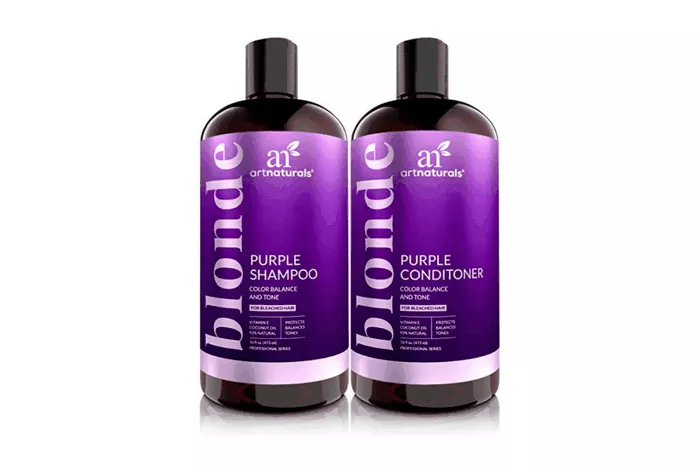Dandruff and hair fall are common hair and scalp problems that affect millions of individuals worldwide. While they may not be life-threatening conditions, they can significantly impact one’s self-esteem and confidence. Dealing with dandruff and hair fall requires a multifaceted approach that addresses both the underlying causes and the symptoms. In this article, we will delve into the various factors contributing to dandruff and hair fall, as well as provide evidence-based strategies to effectively manage and mitigate these issues.
Understanding Dandruff:
Dandruff, medically known as seborrheic dermatitis, is a chronic skin condition characterized by flaky, itchy scalp. It occurs when the scalp’s natural renewal process is accelerated, leading to the shedding of dead skin cells in the form of visible flakes. While the exact cause of dandruff remains unclear, several factors are believed to contribute to its development, including:
1. Malassezia: Malassezia is a type of yeast that naturally resides on the scalp. An overgrowth of Malassezia can trigger inflammation and excessive shedding of skin cells, leading to dandruff.
2. Sebaceous gland activity: Overactive sebaceous glands can produce an excess of sebum, the skin’s natural oil. This excess oil can create an ideal environment for Malassezia to thrive, exacerbating dandruff symptoms.
3. Dry scalp: Contrary to popular belief, dandruff is not always caused by dry skin. In fact, an excessively dry scalp can trigger the overproduction of oil, leading to dandruff.
4. Certain skin conditions: Individuals with psoriasis or eczema may be more prone to developing dandruff due to the underlying inflammation and flakiness associated with these conditions.
Addressing Dandruff:
Managing dandruff involves adopting a comprehensive approach that targets its underlying causes while alleviating symptoms. Here are some effective strategies to combat dandruff:
1. Use medicated shampoos: Over-the-counter medicated shampoos containing active ingredients such as zinc pyrithione, selenium sulfide, ketoconazole, or coal tar can help reduce dandruff symptoms by controlling the proliferation of Malassezia and reducing scalp inflammation. These shampoos should be used regularly according to the manufacturer’s instructions for optimal results.
2. Practice good hygiene: Regularly washing your hair with a gentle, pH-balanced shampoo can help remove excess oil, dirt, and dead skin cells from the scalp, reducing the risk of dandruff. However, avoid excessive shampooing, as it can strip the scalp of its natural oils and exacerbate dryness.
3. Maintain a healthy diet: A balanced diet rich in vitamins, minerals, and essential fatty acids is crucial for maintaining a healthy scalp and hair. Incorporate foods rich in omega-3 fatty acids, such as fatty fish, flaxseeds, and walnuts, as they have anti-inflammatory properties that can help alleviate dandruff symptoms.
4. Manage stress: Chronic stress can weaken the immune system and exacerbate inflammatory skin conditions like dandruff. Practice stress-reducing techniques such as meditation, yoga, deep breathing exercises, or regular physical activity to help manage stress levels and promote scalp health.
Understanding Hair Fall:
Hair fall, also known as alopecia, is a common condition characterized by excessive shedding or thinning of hair. While it’s normal to lose some hair on a daily basis, persistent hair fall beyond the normal range can indicate an underlying issue. Several factors can contribute to hair fall, including:
1. Genetics: Hereditary hair loss, also known as androgenetic alopecia, is the most common cause of hair fall in both men and women. This type of hair loss is characterized by a progressive thinning of the hair follicles, eventually leading to baldness in some individuals.
2. Hormonal changes: Fluctuations in hormone levels, such as those occurring during pregnancy, childbirth, menopause, or thyroid disorders, can disrupt the hair growth cycle and lead to excessive hair fall.
3. Nutritional deficiencies: Inadequate intake of essential nutrients such as vitamins (e.g., Biotin, Vitamin D), minerals (e.g., Iron, Zinc), and proteins can compromise hair health and contribute to hair fall.
4. Stress and lifestyle factors: Chronic stress, poor dietary habits, smoking, excessive alcohol consumption, and lack of sleep can disrupt the body’s natural processes, including hair growth, and contribute to hair fall.
Addressing Hair Fall:
Managing hair fall requires a holistic approach that addresses the underlying causes while promoting hair growth and strengthening the hair follicles. Here are some effective strategies to combat hair fall:
1. Nutritional supplementation: Incorporating supplements rich in essential nutrients such as Biotin, Iron, Zinc, and Vitamin D can help support hair health and promote growth. However, it’s essential to consult a healthcare professional before starting any supplementation regimen to ensure proper dosage and suitability.
2. Scalp massage: Regular scalp massage with essential oils such as coconut oil, almond oil, or rosemary oil can help improve blood circulation to the scalp, stimulate hair follicles, and promote hair growth. Massage your scalp gently using circular motions for a few minutes each day to reap the benefits.
3. Avoid tight hairstyles and harsh treatments: Tight hairstyles such as ponytails, braids, or cornrows can exert tension on the hair follicles, leading to traction alopecia or hair breakage. Similarly, avoid using harsh chemical treatments such as perming, straightening, or bleaching, as they can weaken the hair shaft and increase the risk of hair fall.
4. Manage underlying health conditions: If hormonal imbalances or medical conditions such as thyroid disorders are contributing to your hair fall, seek medical treatment to address these issues effectively. Your healthcare provider may recommend hormone replacement therapy, medication, or other interventions to help regulate hormone levels and improve hair growth.
Conclusion:
Dandruff and hair fall are common hair and scalp issues that can have a significant impact on one’s appearance and self-confidence. While managing these conditions may require patience and dedication, adopting a holistic approach that addresses the underlying causes while alleviating symptoms can lead to improved scalp health and hair growth. By incorporating the strategies outlined in this article into your daily routine and seeking professional guidance when needed, you can effectively combat dandruff and hair fall and restore your hair’s health and vitality. Remember, consistency is key, and with time and effort, you can achieve the healthy, lustrous hair you desire.


